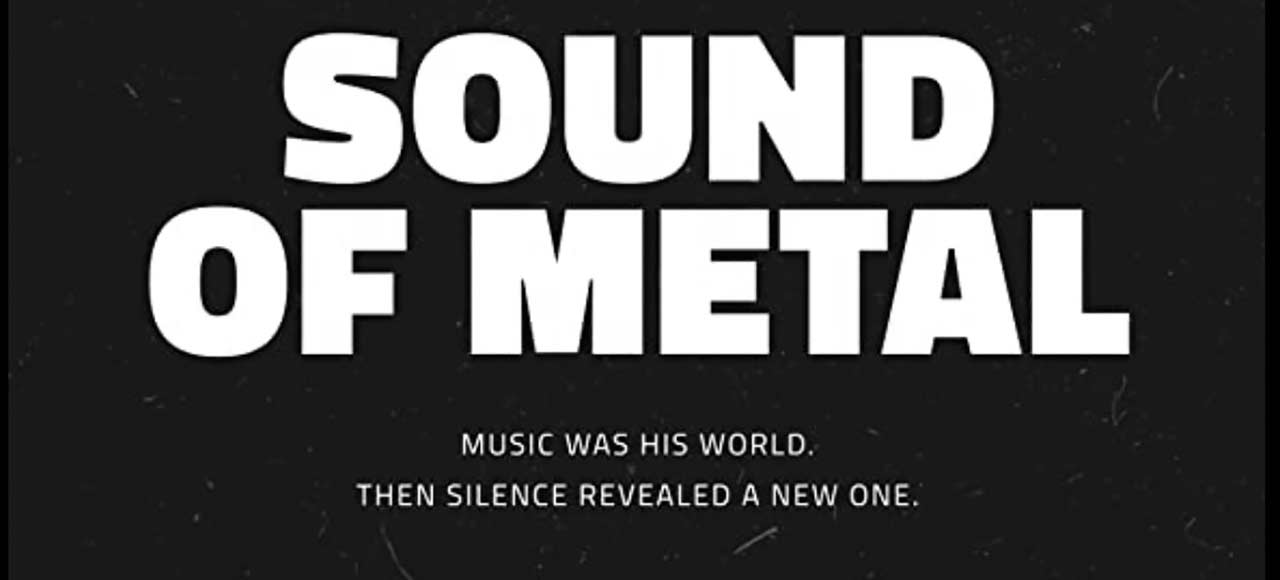
Sound of Metal is a welcome departure from the usual Hollywood deaf-themed movies featuring tragic deaf women being rescued by hearing people, e.g. Children of a Lesser God, Johnny Belinda. The protagonist, Ruben, played by Riz Ahmed, is a rock band drummer and four-years-sober addict who wakes up one morning to realize that he has lost a significant portion of his hearing. The film follows Ruben as he responds to his hearing loss and the impact on his sobriety. It captures a narrative arc of what Deaf Studies scholar Paddy Ladd refers to as deafhood – the journey of becoming a deaf person.
Not surprisingly, Ruben’s reaction to losing his hearing includes anger and denial in the form of his quest for a cure. Once Ruben learns about cochlear implants, he immediately latches on to this as a way to return to his life as a musician living on the road. Regardless of what he is told, he immediately believes that cochlear implants will fix his hearing loss and return his ability to hear to what it was before he became deaf. Yet it turns out that his hearing loss is not the only locus of his denial, as is shown by Ruben’s experiences at a group home for deaf and hard of hearing addicts. Sound of Metal is not just a movie about the experience of being deaf, it is also a movie about addiction, another kind of disability that is often not recognized as such. This prompts questions: What is a disability? How do Ruben’s disabilities inflect and impinge upon one another? What are our obligations to recognize and provide accommodations to people with disabilities?
Sound of Metal has cast a broad spectrum of Deaf people or those who have grown up in the signing Deaf community, such as Lauren Ridloff and Paul Raci, a CODA (Child of Deaf Adults) cast as Joe, the group home director. The initial scene where Ruben meets Joe at the group home could stand in for any initial encounter between a nonsigning deaf person and a signing Deaf person. Ruben is hesitant and uncertain about how communication will proceed. Joe, having had the benefit of years of experiences interacting with hearing nonsigners, responds fluidly to Ruben’s hesitation, providing a response that fits midway on the spectrum of gesture and ASL -– inviting Ruben to step into this community of Deaf people who sign.
Late-deafened adults often choose cochlear implantation and auditory rehabilitation over learning a new language and joining a new community. In Sound of Metal, Ruben is told early on that he has to protect his hearing and not expose himself to loud noise. His decision to ignore this advice comes with a cost, which is not just to lose his hearing, but to lose the life he knows as a musician. Not all late-deafened adults rely on sound for their livelihood in this way, but the question this poses – whether one should try to recover what one has lost or to move in a new direction – is the framing that is often posited around disability loss narratives. This question is often coupled with a skepticism that the new way of being in the world really can be not just satisfactory, but sufficiently rich in a way that makes life’s future possibilities truly flourishing rather than adaptive.
This is a movie about deafness made for Hearing people – this holds true for both the auditory content of the film and the accessibility of the film. The film’s sound engineering is used to convey the experience of becoming deaf. As a deaf person, of course I must rely on the testimony of others on this point (as well as the captioning.) Yet this raises two questions for me: one is whether these choices reflect a hearing person’s imaginings of what it is like to become deaf or an experience of becoming deaf?
My second question is about the particular characteristics of Ruben’s experiences as a deaf person with bilateral cochlear implants, and whether the information conveyed through the sound engineering emphasize certain aspects of his experiences authentically. A party scene conveys this creatively: most of the guests are speaking a language that Ruben does not understand, operating as a metaphor for the limitations of cochlear implants. The astute viewer will connect this to an earlier scene where Ruben’s inability to understand the (signed) language leaves him isolated.
This brings up on a longstanding debate in deaf education, whether it is best to adapt to the larger mainstream society with partial access to language or whether a flourishing life is best lived in a community where one has complete access to language, albeit in a smaller community. In the case of late-deafened adults, what one loses by trying to assimilate to the larger society is the aggregate experience of the small everyday moments of human interaction and communication that allow a person to feel a part of the community.
Finally, this review would be remiss if it did not mention the exasperation expressed by deaf people that a hearing actor was once again cast in a deaf character role. The nature of acting seems to dictate that one can take any role and make it their own. Yet if this were to be the case, why is it that Deaf and disabled actors have such a hard time getting jobs – even those that would seem to be a “natural fit” such as a deaf actor taking up a deaf role?
Teresa Blankmeyer Burke is Professor of Philosophy at Gallaudet University, the world’s only liberal arts college for deaf, hard of hearing, and hearing students. She is the first signing Deaf woman to receive a PhD in Philosophy in the world, and is known for her groundbreaking work in Deaf Philosophy.

